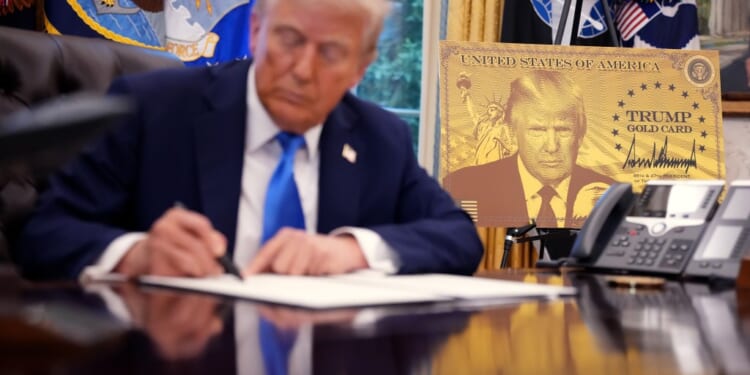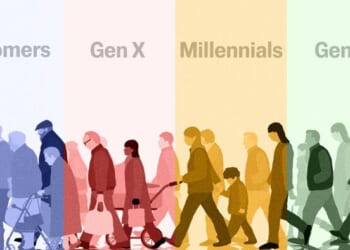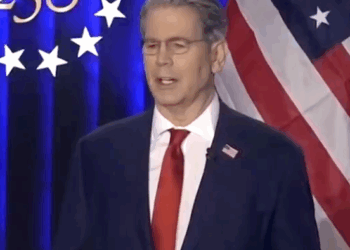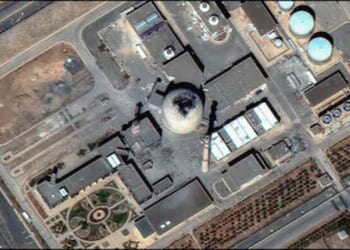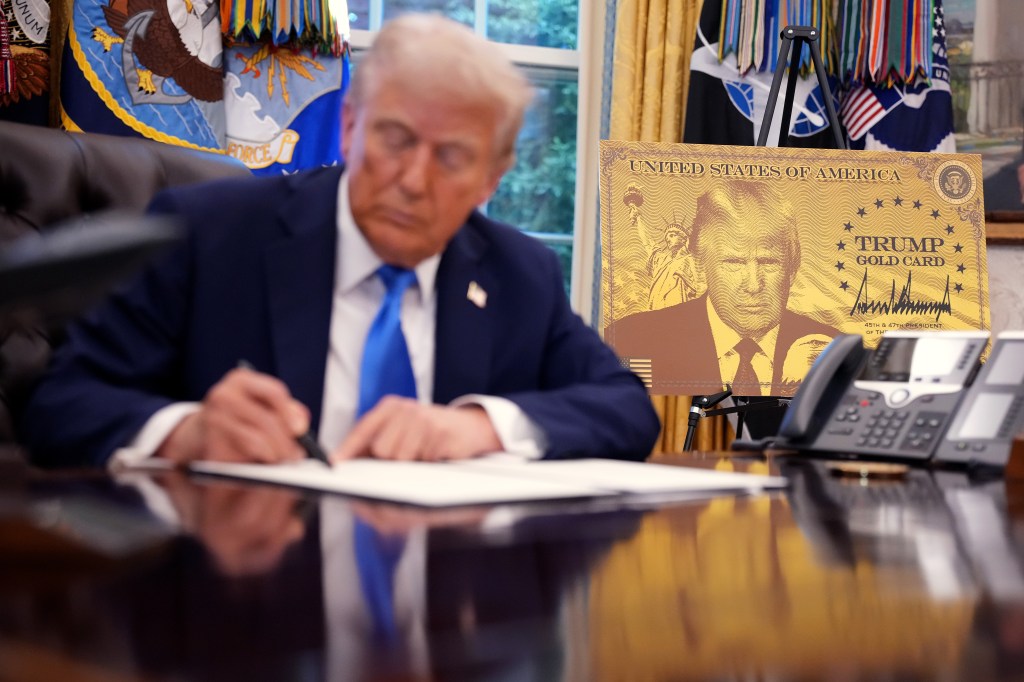
The H-1B visa program, created under the Immigration Act of 1990, provides a path for employers to hire foreign workers in, per the Labor Department’s online H-1B visa overview, “specialty occupations or as fashion models of distinguished merit and ability” and relocate them to U.S. soil. The overview further states that the visa program’s purpose “is to help employers who cannot otherwise obtain needed business skills and abilities from the U.S. workforce by authorizing the temporary employment of qualified individuals who are not otherwise authorized to work in the United States.”
Cecilia Esterline explained the H-1B visa program for The Dispatch in January:
H-1B visas are typically issued for three years initially, but they can be extended for up to three additional years. However, if the employee has applied for permanent residency via an employment-based green card but is awaiting green card availability due to nationality restrictions, H-1B status can be extended beyond the usual six-year limit.
Every year 85,000 initial H-1B visas are up for grabs, including 20,000 visas reserved for individuals who have earned a master’s degree or higher from a U.S. institution. Because of the limited availability of H-1B visas, recipients are chosen by lottery after being registered by the employer. Lottery registrations regularly exceed annual visa allocations, so registrants are chosen at random to submit a full petition for adjudication.
As Hiroshi Motomura—a law professor at UCLA and co-director of the university’s center for immigration law and policy—told TMD, “The cap is to pay some respect to the people who feel that too many human beings are going to displace them.” But even capping the number of visas doesn’t work as intended. Bloomberg and the Wall Street Journal have reported that large companies have rigged the H-1B lottery by outsourcing and staffing middlemen—sometimes linked through webs of related entities—who file multiple registrations for the same candidate to increase the odds of being selected.
However, with the new fee—increased from the previous fee of between $1,700 and $4,500—Motomura explained, “The president’s essentially saying that the number is too high.”
Employers apply for the visa on the foreign worker’s behalf and would be on the hook for the $100,000 fee, should they choose to hire that H-1B worker. Such a cost might be negligible to tech companies—which are competing over AI researchers with nine-figure salaries—but devastating for less cash-flush industries. Julia Gelatt, an associate director of the Migration Policy Institute’s U.S. immigration policy program, told TMD, “I think a lot of universities and nonprofits in particular, but also for-profit companies around the country, are questioning if they’ll be able to use the H-1B program going forward, if it’s going to cost $100,000 per applicant.”
Foreign workers who want to move to the U.S. and whose prospective American-based employers are unwilling to pay $100,000 could try their luck with the tighter O-1 visa program, for “Individuals with Extraordinary Ability or Achievement,” an exclusive visa reserved for geniuses and renowned leaders in their field.
Trump’s proclamation does grant the Department of Homeland Security secretary the authority to issue exemptions when, in his or her discretion, they determine “the hiring of such aliens to be employed as H-1B specialty occupation workers is in the national interest and does not pose a threat to the security or welfare of the United States.” Hani Mansour, an economics professor at the University of Colorado Denver, told TMD that allowing exemptions to be made at the secretary’s discretion “just basically creates a bit of a wild west of who can make the best case” that their employee’s hiring meets that threshold.
H-1B visas have been a MAGA discussion topic before, with much of the online right spending the last days of 2024 fighting about it online. On December 24, Trump ally and right-wing provocateur Laura Loomer asked Tesla and SpaceX CEO Elon Musk, “How is it America First to let Indians replace America’s top talent?” Musk defended the H-1B visa program as a critical channel for U.S. companies to access high-skilled labor, and wrote on X on December 27. “I will go to war on this issue the likes of which you cannot possibly comprehend.” While some influential figures on the right, such as Steve Bannon, called for eliminating the program, Trump sided with Musk at the time. “I’ve been a believer in H-1B,” Trump told the New York Post on the phone on December 28. “I have used it many times. It’s a great program.”
Many international students also rely on the visa to work in the U.S. post-graduation. Gelatt explained that many international students “build their pathway to stay in the United States through the H-1B visa.” Without access to that visa program, she continued, “I would predict that a lot of international student graduates might not have the opportunity to stay in the United States.” If they can’t secure legal status to employment in the U.S., she added, they are more likely to turn to positions “in India or in China, and they’re much less likely to spend the rest of their career in the United States.”
On August 7, China’s State Council officially updated its entry-exit policies, adding a new K visa “for young science, technology professionals.” The visa launches October 1, and whereas H-1B is intentionally complicated, the K visa is intended to make it more convenient for tech workers, and applicants “do not require a domestic employer or entity to issue an invitation.” By contrast, along with further restricting H-1B visas, Trump officially unveiled his “Gold Card” visa program last month, which allows individuals to pay $1 million for U.S. residence after an “in-depth background check.” Democrat Sen. Dick Durbin wrote on X that the president was “rolling out the welcome mat for Russian oligarchs and cartel bosses.”
Meanwhile, Stuart Anderson, the National Foundation for American Policy’s executive director and former counselor to the Immigration and Naturalization Services’ commissioner, told TMD, “What’s actually going to happen is this is going to limit opportunities for U.S. workers, because you’re going to see startups have less ability to hire highly skilled individuals” from outside the U.S. As Costa noted, employers sponsoring the visas for foreign workers “pay [them] less than what they would have to pay a similarly situated U.S. worker,” and an effective visa program would more effectively prevent workers from undercutting each other’s wages.
The argument for restricting H-1B visas is that big technology companies shouldn’t be spending billions to train and import foreign employees, but instead, use those resources to train a whole new generation of Americans, who—polling finds—feel particularly pessimistic about the U.S. economy and job market. It’s a similar argument to those made about tariffs, and it stumbles on a similar point: that even if that were to happen, such training would take decades, and companies need workers now.
As Mansour explained, many companies are now trying to determine whether they need to adjust their foreign-worker hiring process and whether their hiring strategy remains viable. “What’s the pool of talent that’s available to them? So it’s just gonna basically inject more uncertainty in an economy that’s already kind of suffering from a lot of uncertainty, and that’s just not going to be good.”

